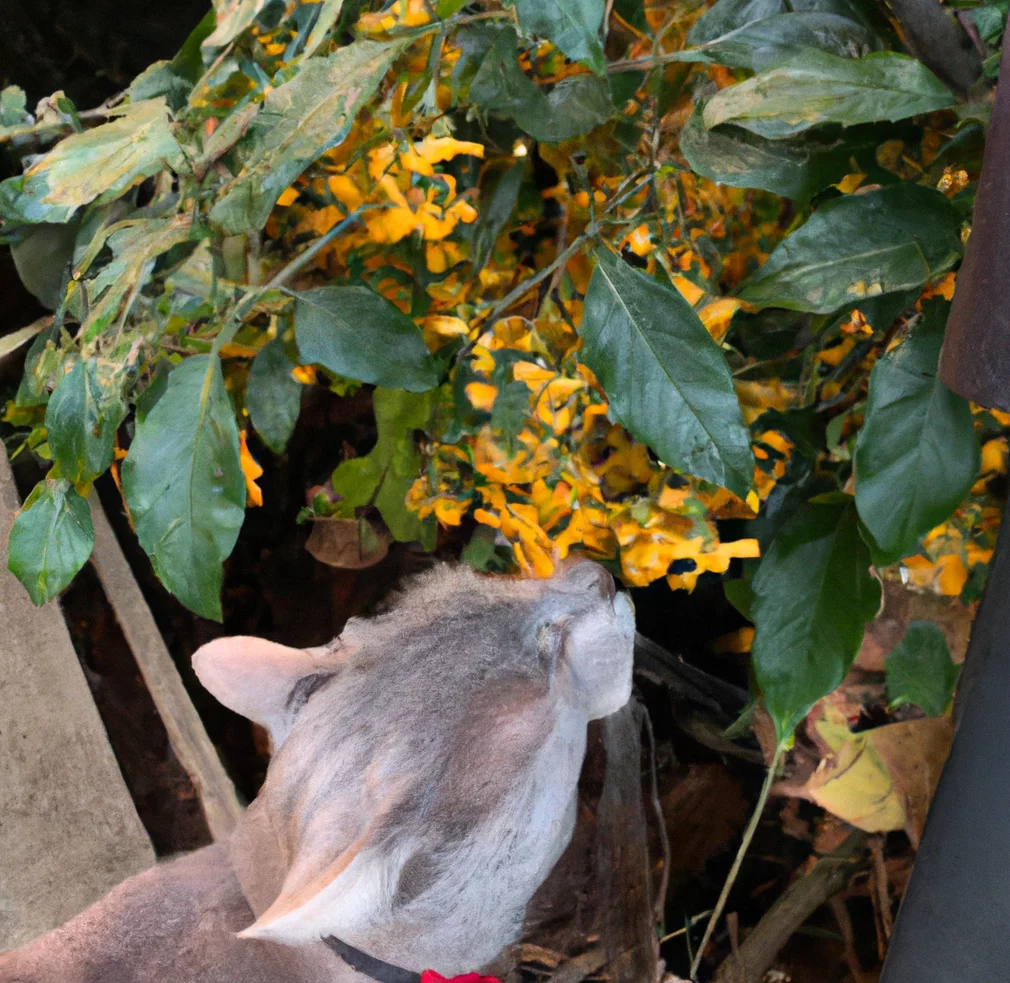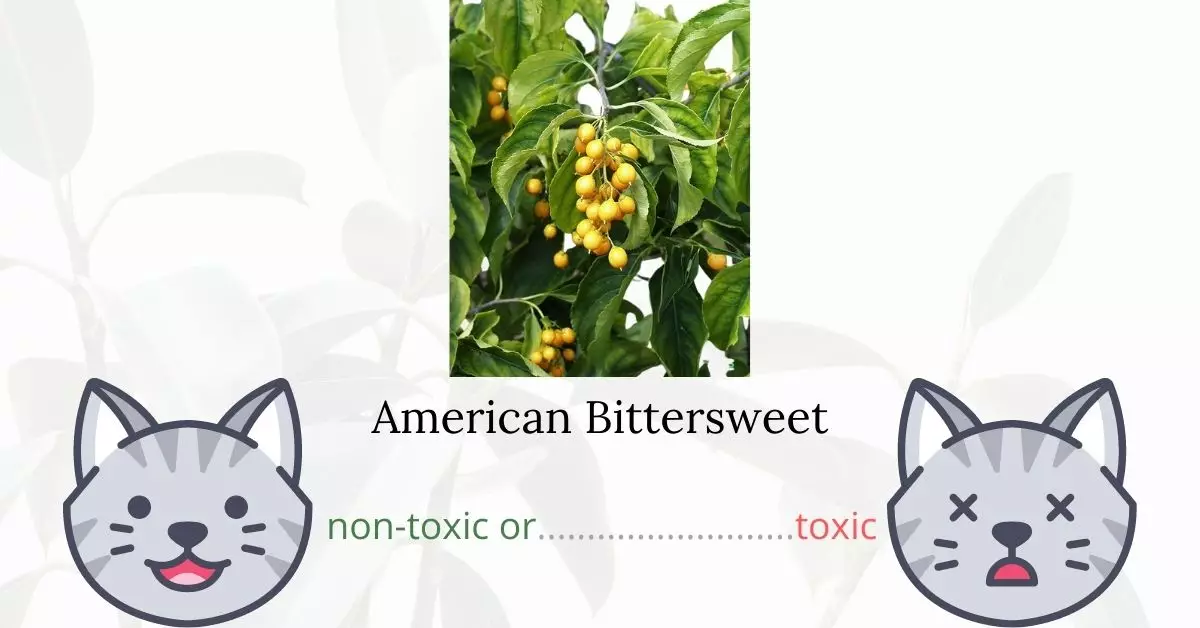Yes, American Bittersweet, also known as Climbing Bittersweet, Waxwork, Celastrus scandens, Shrubby Bittersweet, and False Bittersweet, is toxic to cats. Even a small amount can cause gastrointestinal upset in felines, manifesting as symptoms like vomiting and diarrhea. More severe reactions can arise if a large portion of the plant is ingested.
This article was meticulously crafted in collaboration with a team of experienced DVMs (doctors of veterinary medicine). Through their insights and expertise, we offer precise and contemporary data regarding the potential hazards of various plants, particularly the American Bittersweet, and their effects on cats. Furthermore, we have also consulted high-authority websites such as ASPCA and PetMD to ensure our readers receive the most trustworthy and reliable information.
Clinical Signs of American Bittersweet Plant Poisoning in Cats

When cats come into contact with, smell, or ingest the American Bittersweet plant, they may exhibit various symptoms due to the plant’s toxic properties. The exact toxic principles of American Bittersweet remain not fully understood, but exposure to it can lead to the following clinical signs:
- Vomiting: After ingestion, the toxins in American Bittersweet can irritate a cat’s gastrointestinal tract, leading to nausea and eventual vomiting. This is the body’s natural response to expel the ingested harmful substance.
- Diarrhea: Just as with vomiting, diarrhea is another way the body tries to rid itself of toxins. The irritation and inflammation caused by the plant’s toxic elements can result in a rapid movement of the contents through the intestines, causing diarrhea.
- Seizures (in rare cases): Though less common, some cats may experience seizures after exposure to American Bittersweet. This could be due to the potential neurotoxic effects of the plant or a result of severe systemic distress.
- Weakness: The combined physical toll of vomiting, diarrhea, and other systemic effects can lead to a cat becoming weak and lethargic. This is a sign that the cat’s body is under significant stress and is trying to recover.
Although many cats may recover on their own after being poisoned with American Bittersweet, it is paramount to consult with a veterinarian due to the unpredictability and potential severity of the plant’s effects. Immediate medical attention can mitigate risks and provide supportive care to help the cat recover more effectively.
First Aid and Treatment of American Bittersweet Plant Poisoning in cats

Just like in other plant poisoning cases, the veterinarian may induce vomiting to get rid of the American bittersweet residues from his or her system. The vet may also give the cat activated charcoal, which absorbs toxins in the body before they enter the bloodstream. The charcoal will eventually pass from the cat’s body, carrying the absorbed toxins with it.
If the vet thinks that vomit induction and activated charcoal are not necessary, he will administer medication to stop vomiting and diarrhea and advise to let the cat recover comfortably on his own.
Recovery from American Bittersweet Poisoning in Cats

Recovery time for cats from American bittersweet poisoning ranges from a few hours to a full day. The vet will almost certainly advise you to feed your cat soft foods for the next few days in addition to giving plenty of fluids to flush everything out of his system.
Prevention
Encountering American bittersweet is inevitable if these plants are grown within your area and your cat loves the outdoors. Keep your feline safe from exposure to American bittersweet and other toxic plants by keeping them busy and comfortable inside your home.
If you love plants but have cats at home, check out these lists:





